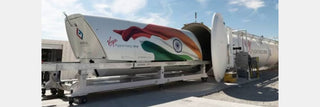Introduction
IIT Madras has taken a giant leap towards futuristic travel with the successful completion of its Hyperloop test track. This 410-meter track is a significant milestone in India's journey towards advanced transportation systems.
Background
The Hyperloop concept, originally introduced by Elon Musk in 2013, aims to revolutionize transportation by allowing pods to travel at speeds of up to 1,100 km/h through low-pressure tubes. The test track at IIT Madras was developed in collaboration with Indian Railways, ArcelorMittal, and TuTr, an incubated startup at the institute.
Technology and Features
Hyperloop technology uses magnetic propulsion to move pods through vacuum-sealed tubes, creating a frictionless environment that significantly increases travel speed and energy efficiency. The operational speed of the system is expected to be around 360 km/h, making it one of the fastest modes of transportation.
Impact and Future Plans
The successful completion of the test track is a major step towards implementing Hyperloop technology in India. The first full-scale Hyperloop project in India is planned for the Mumbai-Pune corridor, which aims to reduce travel time between the two cities to just 25 minutes.
Conclusion
IIT Madras's Hyperloop test track marks a significant milestone in India's journey towards advanced transportation systems. This achievement brings the vision of vacuum-based train travel closer to reality and highlights the potential of Hyperloop technology to transform the way people travel.

















